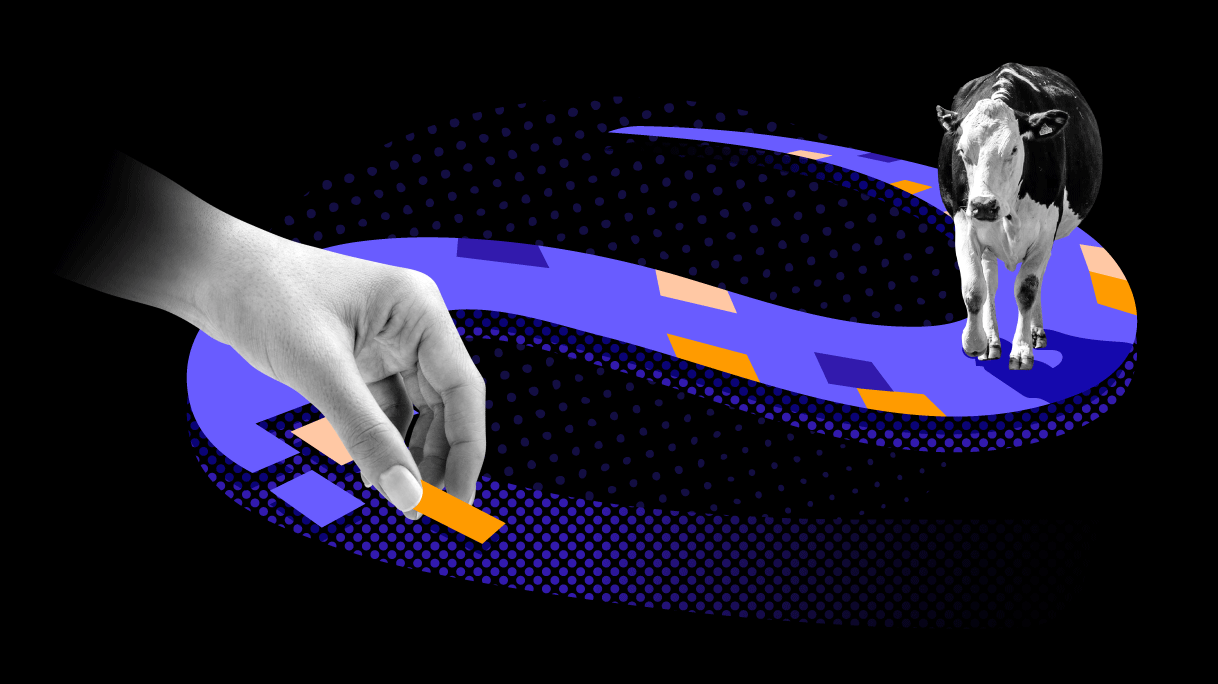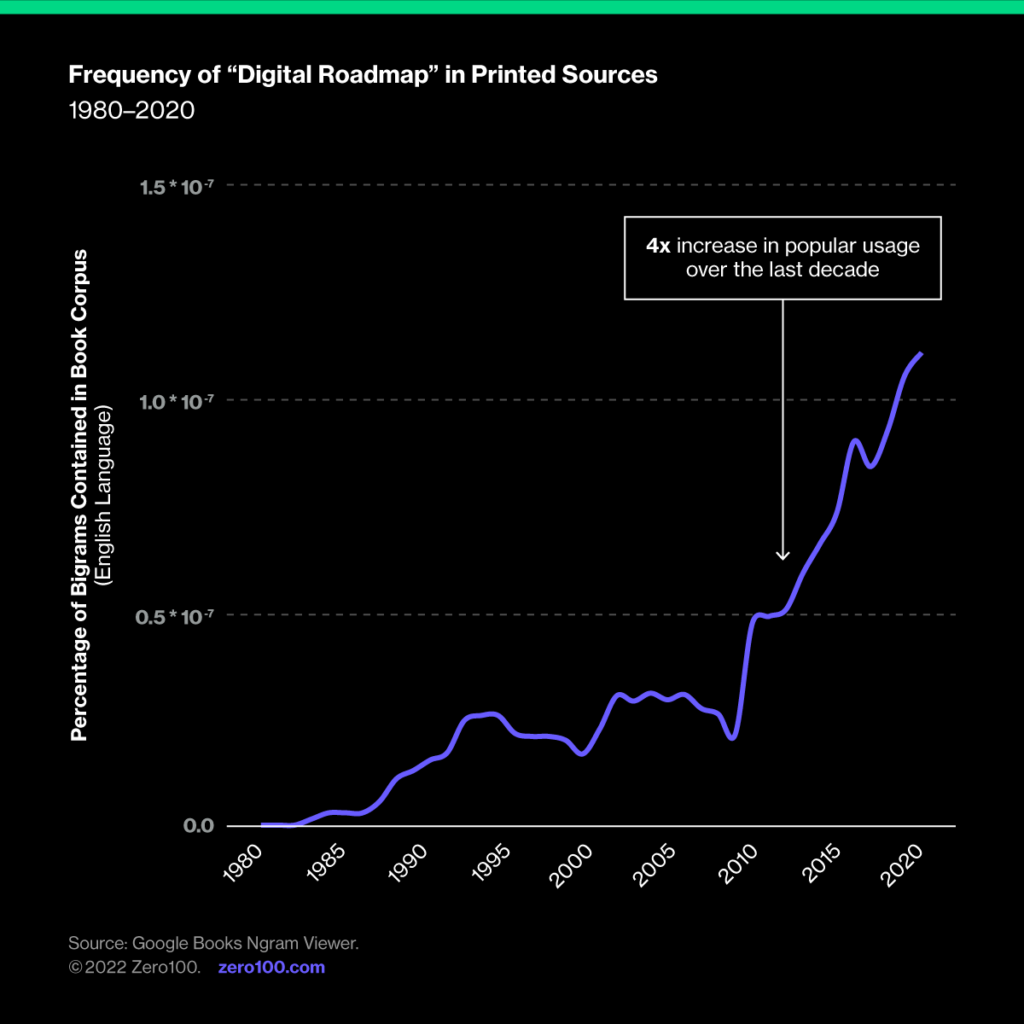
Digital Transformation Is 80% Strategy and 20% Technology
Digital transformations are targeting business models and sustainability as top priorities, says Boston Consulting Group. Prose and Deere show how tech creates enterprise value while increasing sustainability.
Last week Boston Consulting Group announced the formation of BCG X, a unit dedicated to digital transformation. They also released a study saying that 60% of companies surveyed plans to increase spending on digital transformation in 2023 despite recession fears, against only 4% planning cuts. The top two focus areas for these initiatives are first, business model transformation, and second sustainability.
Don't Pave a Cow Path
Robert Gordon of Northwestern University made noise through the early 2000's questioning the impact of computers on labor productivity. In fact, productivity growth in the US did surge between 1997-2008, but at no point did gains consistently match what happened from 1947-1973. Looking back, it seems the first wave of digitization, which was about ERP systems streamlining industrial processes, made some difference, but no real “transformation”.

Were we paving the cow path then? And, if so, what is different now?
I think the answer is yes, and the difference now is the digitally empowered customer. Ever since 2000, consumer-facing technology has exploded with around 7 billion smart phones, 4.6 billion social media users, and at least 20 million e-commerce sites now live worldwide. This digital super-customer is now equipped to drive change in your business model, provided you know how to engage them in the process of invention.
Inventing for Consumers
Consider the example of Prose hair care products. The idea is to sell personalized formulations to customers based on an online questionnaire. The company leans into the idea of perpetual innovation and makes a virtue of engagement. Their homepage reads:
“Progress is built into every Prose formula. We routinely update our products with new ingredients and complexes developed by our R&D lab, and seasonally adjust your formulas to match the conditions in your ZIP code. You're part of the process too—tell us how your haircare performs using Review & Refine, and we'll tweak your next order for even better results over time.”
Prose has reportedly grown to over $100M in sales since its 2017 founding. The disruptions to traditional business models include selling direct-to-consumer, making individual batches, and locking customers into a two-way relationship. This includes digital transformations of the shopping experience, product development process and last mile logistics, and takes advantage of data analytics, microservice architecture, and smart phones.
Inventing for Business Customers
At the other end of the spectrum take John Deere as an example. For decades Deere sold on great engineering, quality, and a trusted brand. Mechanical innovation was the story, and a customer's only way to engage was face-to-face through dealers. Today, Deere is a leader in the application of digital technologies in its equipment including telematics, self-driving controls, remote monitoring capabilities and microservice architecture.
The range of smart tractors, loaders, and harvesters are not just better machines. They comprise an entirely new business model called “Precision Ag Technology” with a value proposition tuned an increasingly data-savvy customer. The homepage reads:
“Reduce Input Coststhrough better machine management and application accuracy. Increase Yieldsby improving every aspect of your production process. Run Smoother with Less Stressby automating repetitive tasks and enabling remote diagnostics.”
Deere's stock is up 195% over the past five years compared to only 40% for the Dow.
Business Model Transformation and Sustainability Go Hand in Hand
These examples illustrate strategic thinking that starts with what the customer wants, even if they don't ask for it explicitly, and then works backwards to solve the operational problems of doing it. Digitizing existing processes locks in the old strategy, leaving the door open for competitors to reinvent the business for an increasingly digital customer who will not only jump to the better offer, but crow about it on social media.
Technology is a necessity for serious business model transformations, and it also sets the stage for embedding sustainability. For both Prose and Deere, ongoing customer engagement creates a platform for decarbonization initiatives everywhere from packaging design and returns management to renewable fuels. Customers can drive the process if they share in the rewards via cost savings made possible with renewable revenue businesses like Deere's Precision Ag and Prose's Salon subscription service, both of which create enterprise value at the same time as carbon-efficiency opportunities.
Digital transformation can be a two-for-one if you get strategy the right.
Critical Reading
BLOOMBERG
EU Leaders to Focus on Next Winter After Russian Gas Supply Cut
Commentary: To discuss topics including joint gas purchases, filling of storages, preparation of contingency plans for 2023-2024 winter, boosting investment in innovation, infrastructure and energy efficiency, EU heads of government will get together on December 15th.
#EU #energy
THE NEW YORK TIMES
Global Car Supply Chains Entangled with Abuses in Xinjiang, Report Says
Commentary: Despite a recent US law restricting purchases from Xinjiang, which is presumed to use forced labor to produce goods, the auto industry still relies heavily on the region for raw materials, components, and other supplies.
#auto #china
TIME
How Israel Became the Global Center For Alternative Meat Tech
Commentary: Cheese produced from microalgae, roast beef made from fermented plant proteins, kebabs, burgers, and pulled beef crafted from “Redefine Meat” were among the futuristic foods exhibited at the Food Tech Israel conference.
#alternative #meats